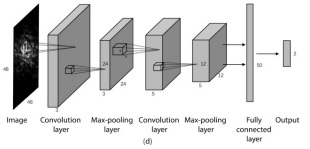A Review: Application of Deep Learning in Smart City Analysis
DOI:
https://doi.org/10.63876/ijss.v1i1.5Keywords:
deep learning, smart city, development cityAbstract
The rapid development of smart cities has led to the increasing demand for advanced technologies that can effectively manage the vast amount of data generated by various sources. Deep learning, a subset of machine learning, has been successfully applied in various domains and has shown remarkable performance in analyzing large-scale and complex data. This review paper presents a comprehensive analysis of the recent advancements and applications of deep learning in smart city analysis. The paper covers the different use cases of deep learning in the smart city domain, such as transportation, energy, healthcare, security, and public services. The review also highlights the challenges and opportunities of applying deep learning in the smart city domain and suggests potential research directions for future work. The analysis demonstrates the effectiveness of deep learning in smart city analysis and its potential to contribute to the development of smarter and more sustainable cities.
Downloads
References
Saluky, S. H. Supangkat, and F. F. Lubis, “Moving Image Interpretation Models to Support City Analysis,” in 2018 International Conference on ICT for Smart Society (ICISS), Semarang, Oct. 2018, pp. 1–5. doi: 10.1109/ICTSS.2018.8550012.
L. Gang, “Research on the Measurement of the Construction Level and Development Strategy of Yiyang Smart City Based on Principal Component Analysis,” in 2020 International Conference on Intelligent Transportation, Big Data & Smart City (ICITBS), Vientiane, Laos, Jan. 2020, pp. 176–180. doi: 10.1109/ICITBS49701.2020.00044.
M. Hassan, A. Kanwal, M. Jarrah, M. Pradhan, A. Hussain, and B. Mago, “Smart City Intelligent Traffic Control for Connected Road Junction Congestion Awareness with Deep Extreme Learning Machine,” in 2022 International Conference on Business Analytics for Technology and Security (ICBATS), Dubai, United Arab Emirates, Feb. 2022, pp. 1–4. doi: 10.1109/ICBATS54253.2022.9759073.
D. Diodati, A. Cruciani, and A. Natale, “Machine and Deep Learning using Remote Sensing to reach zero emission cities: A Survey,” in 2022 IEEE International Smart Cities Conference (ISC2), Pafos, Cyprus, Sep. 2022, pp. 1–6. doi: 10.1109/ISC255366.2022.9921928.
S. Lima and L. Teran, “Cognitive Smart Cities and Deep Learning: A Classification Framework,” in 2019 Sixth International Conference on eDemocracy & eGovernment (ICEDEG), Quito, Ecuador, Apr. 2019, pp. 180–187. doi: 10.1109/ICEDEG.2019.8734346.
D. Goularas and S. Kamis, “Evaluation of Deep Learning Techniques in Sentiment Analysis from Twitter Data,” in 2019 International Conference on Deep Learning and Machine Learning in Emerging Applications (Deep-ML), Istanbul, Turkey, Aug. 2019, pp. 12–17. doi: 10.1109/Deep-ML.2019.00011.
Q. Chen et al., “A Survey on an Emerging Area: Deep Learning for Smart City Data,” IEEE Trans. Emerg. Top. Comput. Intell., vol. 3, no. 5, pp. 392–410, Oct. 2019, doi: 10.1109/TETCI.2019.2907718.
I. Kok, M. U. Simsek, and S. Ozdemir, “A deep learning model for air quality prediction in smart cities,” in 2017 IEEE International Conference on Big Data (Big Data), Boston, MA, USA, Dec. 2017, pp. 1983–1990. doi: 10.1109/BigData.2017.8258144.
A. Elabora, M. Alkhatib, S. S. Mathew, and M. El Barachi, “Evaluating Citizens’ Sentiments in Smart Cities: A Deep Learning Approach,” in 2020 5th International Conference on Smart and Sustainable Technologies (SpliTech), Split, Croatia, Sep. 2020, pp. 1–5. doi: 10.23919/SpliTech49282.2020.9243768.
R. Xin, J. Zhang, and Y. Shao, “Complex network classification with convolutional neural network,” Tsinghua Sci. Technol., vol. 25, no. 4, pp. 447–457, Aug. 2020, doi: 10.26599/TST.2019.9010055.
A. J. P. Samarawickrama and T. G. I. Fernando, “A recurrent neural network approach in predicting daily stock prices an application to the Sri Lankan stock market,” in 2017 IEEE International Conference on Industrial and Information Systems (ICIIS), Peradeniya, Dec. 2017, pp. 1–6. doi: 10.1109/ICIINFS.2017.8300345.
S. D. Kumar and D. Subha, “Prediction of Depression from EEG Signal Using Long Short Term Memory(LSTM),” in 2019 3rd International Conference on Trends in Electronics and Informatics (ICOEI), Tirunelveli, India, Apr. 2019, pp. 1248–1253. doi: 10.1109/ICOEI.2019.8862560.
P. Xuan, L. Gao, N. Sheng, T. Zhang, and T. Nakaguchi, “Graph Convolutional Autoencoder and Fully-Connected Autoencoder with Attention Mechanism Based Method for Predicting Drug-Disease Associations,” IEEE J. Biomed. Health Inform., vol. 25, no. 5, pp. 1793–1804, May 2021, doi: 10.1109/JBHI.2020.3039502.
R. Hendricks and L. C. Altherr, “An Overview of Selected Autoencoders and Their Potential Application in Smart Cities,” in 2021 International Conference on Computational Science and Computational Intelligence (CSCI), Las Vegas, NV, USA, Dec. 2021, pp. 1895–1897. doi: 10.1109/CSCI54926.2021.00354.
K.-H. Le Minh and K.-H. Le, “AirGen: GAN-based synthetic data generator for air monitoring in Smart City,” in 2021 IEEE 6th International Forum on Research and Technology for Society and Industry (RTSI), Naples, Italy, Sep. 2021, pp. 317–322. doi: 10.1109/RTSI50628.2021.9597364.











